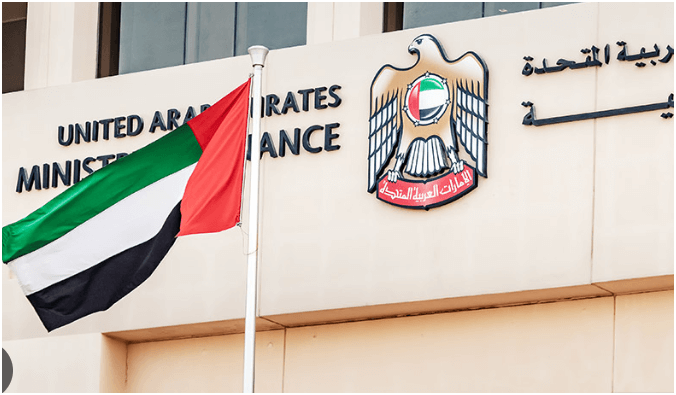UAE: New Law Encourages Dynamic Public-Private Partnerships
The United Arab Emirates (UAE) has introduced a groundbreaking new law aimed at fostering dynamic public-private partnerships (PPPs). This legislative move is designed to stimulate economic growth, enhance infrastructure development, and improve public services by leveraging the strengths of both the public and private sectors.
The UAE’s new PPP law is part of a broader strategy to diversify the economy and reduce its dependence on oil revenues. With the UAE Vision 2021 and the National Agenda focusing on sustainable development and enhanced public service delivery, the law aims to create a conducive environment for private sector investment in public projects.
Key objectives of the new law include:
- Encouraging Private Sector Participation: By providing a clear legal framework, the law aims to attract local and international private investors to participate in public sector projects.
- Improving Infrastructure: The law targets the development of high-quality infrastructure, which is crucial for economic competitiveness and improving the quality of life for residents.
- Enhancing Public Services: Through PPPs, the UAE aims to leverage private sector efficiency and innovation to enhance the delivery of public services.
- Promoting Innovation and Sustainability: The law encourages projects that bring innovative solutions and sustainable practices to the forefront.
Key Provisions
The new PPP law introduces several key provisions to facilitate effective partnerships:
- Regulatory Framework: Establishing a clear and transparent regulatory framework to govern PPP agreements, ensuring legal certainty for private investors.
- Contract Flexibility: Allowing for a range of contract models, including build-operate-transfer (BOT), build-own-operate (BOO), and design-build-finance-operate (DBFO), providing flexibility to suit different types of projects.
- Risk Allocation: Defining the distribution of risks between public and private partners, ensuring that risks are managed by the party best equipped to handle them.
- Incentives and Guarantees: Offering various incentives such as tax benefits, long-term leases, and government guarantees to make projects more attractive to private investors.
- Performance Monitoring: Implementing robust mechanisms for monitoring and evaluating the performance of PPP projects to ensure they meet their intended goals.
The implementation of the new law will be overseen by a dedicated PPP unit within the Ministry of Finance. This unit will be responsible for:
- Project Identification and Prioritization: Identifying potential PPP projects that align with national priorities and strategic goals.
- Tendering and Procurement: Managing the tendering process to ensure fair and competitive procurement of private partners.
- Capacity Building: Providing training and support to public sector entities to enhance their capacity to manage PPP projects effectively.
The introduction of the PPP law is expected to have significant economic and social impacts:
- Job Creation: By spurring investment in infrastructure and public services, the law is anticipated to create numerous job opportunities across various sectors.
- Foreign Investment: A stable and attractive investment environment is likely to draw more foreign direct investment (FDI) into the UAE, boosting economic growth.
- Enhanced Public Services: Improved infrastructure and public services will enhance the quality of life for residents, contributing to social well-being and satisfaction.
- Sustainable Development: Projects focused on sustainability will support the UAE’s environmental goals, promoting green growth and reducing carbon footprints.
The UAE has already seen successful examples of PPPs in action, which provide a glimpse into the potential of the new law:
- Transport Sector: The Dubai Metro, a successful PPP project, has significantly improved urban mobility and reduced traffic congestion.
- Healthcare: The partnership between the UAE government and private healthcare providers has led to the establishment of world-class medical facilities, enhancing healthcare delivery.
- Education: PPPs in the education sector have resulted in the development of state-of-the-art educational institutions, offering high-quality education to students.
With the new law in place, the UAE is poised to see an expansion of PPPs across various sectors, including renewable energy, waste management, and digital infrastructure. These partnerships are expected to drive innovation, efficiency, and sustainability, aligning with the UAE’s vision of a diversified and resilient economy.
While the new PPP law holds great promise, its success will depend on addressing several challenges:
- Coordination and Collaboration: Effective collaboration between public and private entities is crucial. Clear communication channels and mutual trust are necessary for successful partnerships.
- Risk Management: Properly identifying and mitigating risks is essential to protect both public interests and private investments.
- Regulatory Clarity: Continuous updates and clarity in the regulatory framework will be needed to adapt to changing market conditions and project requirements.
- Public Awareness: Raising awareness about the benefits of PPPs among stakeholders, including the general public, will be important to garner broad-based support.
The UAE’s new PPP law marks a significant milestone in the country’s journey towards sustainable economic growth and enhanced public service delivery. By fostering collaboration between the public and private sectors, the law aims to harness the best of both worlds—public sector oversight and private sector efficiency and innovation. As the UAE continues to implement and refine this law, it sets a precedent for other countries looking to leverage PPPs for development and progress.
Stay Connected: ”Your Source for the Latest News Updates“





